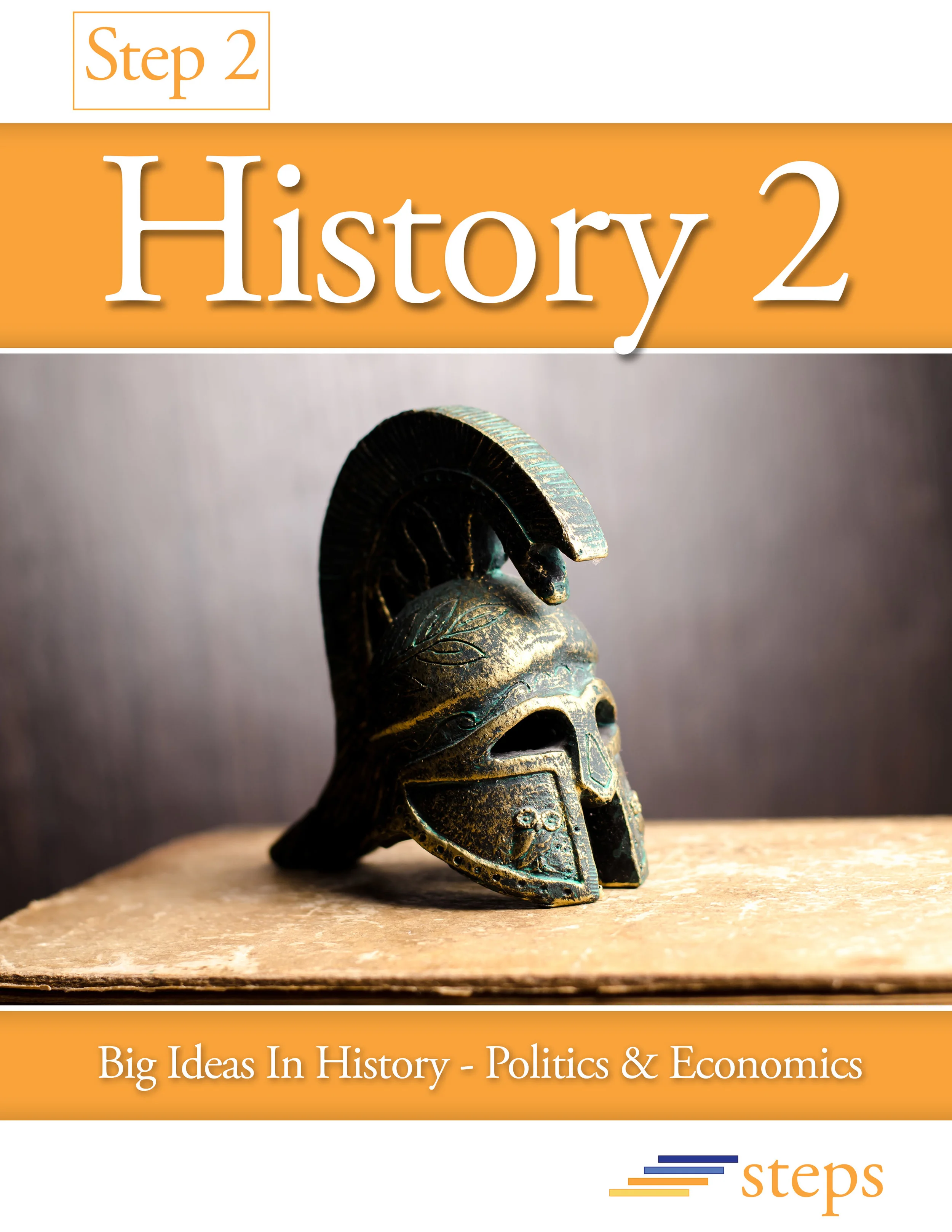Step 2 - History 2 - Big Ideas in History - Politics & Economics
Step 2 - History 2 - Big Ideas in History - Politics & Economics
- Develops literacy, vocabulary!
- Introduces & explores key ideas about governments!
- Introduces the concepts behind money and exchange!
- Fun, hands-on activities!
- Develops critical thinking skills!
- Works well for any-aged student developing literacy!
- Lesson plans are complete and ready to use! Start now!
My son and I just completed History III lesson 12, Understanding Life- Biology, Darwin, Theophrastus, Linnaes, and Vavilov. What struck me during the time my son and I read and understood the lesson was, the number of children being educated these days that study subjects, that seem to exist by themselves and that have little relevance to each other. It is no wonder why history, math or science is boring to most children. What my son and I just experienced was a vocabulary, geography, history and science lesson with a lab, all rolled into one! We learned what biology is, but we learned it in terms of the first scientists, and so we now know something about the passion they had for their subjects. Imagine being a scientist and guarding a seed vault from starving people in St Petersberg during a 900 day siege during WWII or as the Russian's call it, the great patriotic war. That is history and science coming alive! My son concluded his lesson by going outdoors, into the world to catalog and record the life he found around the house. He didn't leave anything out. A is getting a REAL education, thanks to your insight and effort to produce the best curriculum available today. Thanks R.P/, "Father of A."
_____
A course for 7-8 year-olds, and for students of any age who are developing literacy, that marches them through the amazing history of governments and money! When your young students complete this course, they will know more than many adults do about both politics and money. (Sad but true.)
What is politics? What is a democracy, what is communism, socialism, the political forces of our age? What is their history? How did the Greeks and Chinese contribute to these ideas? How do we use these ideas today?
And what is money? Where did the idea for money come from? How does one make a budget? How do countries do it? What determines the value of your nation's money?
Important ideas open up for your student, with fun, involving, hands-on exercises that will challenge and enlighten while at the same time developing the student’s literacy! 18 lesson plans, 6-7 weeks of study three times a week. Two tests and their answer guides are included.
Concepts covered in this course include:
- Definitions for politics, government, authority
- Why we have politics
- The history of politics, starting with the "strong man"
- Kings and Queens
- Pharaohs
- Democracies and Repbublics (Athensand Rome)
- Military Government (Sparta)
- Conficius ideas for government
- Empiers and Wmperors (China and Rome)
- Feudal States (Europe, Japan)
- People's Rights
- The Magna Carta
- Theocracies
- Modern Democracies and Capitalism (Amercia, France, India)
- Communism and Socialism (Russia and China)
- What money is
- How governments and politics control money
- How money controls government and politics
- International Trade
- The relative value of money





